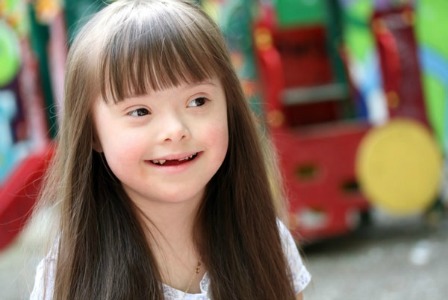
These days, there is a big emphasis on "people-first language." Has political correctness run amok, or should we change the way we talk to better reflect respect for people with disabilities?
All about respect
Language evolves over time.
Sometimes, different terms are preferred because new information tells us the preferred term is a more accurate descriptor. Sometimes, a proper noun becomes an everyday verb simply because everyone starts Googling everything.
Today, advocates of and people with disabilities emphasize “people-first language.” It’s exactly as it sounds: instead of saying, “a Down syndrome child,” you would say, “a child with Down syndrome.”
What’s the big deal?
Are we becoming overly sensitive in this era of Oprah-saturation?
“I think people too frequently don’t realize the power of their words,” explains Trudy Jacobson, chief development and marketing officer of The Arc. “In defining someone by their disability, you can rob them of their individuality.”
For more than six decades, The Arc has helped establish and protect disability rights while advocating for people with intellectual and developmental disabilities and their families. The organization provides a guide to using people-first language.
Why you should care
The Arc reports about 54 million Americans — one out of every five individuals — have a disability. “Well, that still doesn’t affect me,” you insist.
Doesn’t it? “The disability community is the only minority group that anyone can join at any time,” The Arc points out in its guide.
Your words reflect you
“Words are powerful and can cause a lot of damage,” says The Arc’s Jacobson. “Words also represent you and your viewpoint. So, why would you want your choice in words to tie you to negative bias and discrimination, when it is so simple to be more thoughtful about what you are saying?”
The Arc’s guide simplifies what “people-first” means: “People First Language puts the person before the disability, and describes what a person has, not who a person is. Using a diagnosis as a defining characteristic reflects prejudice, and also robs the person of the opportunity to define him [or] herself.”
Another viewpoint
Sandy Lahmann, who has multiple sclerosis and uses a wheelchair, countered conventional wisdom in The Summit Daily.
"I don’t care if someone calls me a 'disabled person,'" Lahmann wrote. "It doesn’t bother me. ... One of the reasons I don’t care is that it gets a little weird."
As a writer, Lahmann describes trying to use the preferred people-first terminology only to find "it seems like I’ve said 'person with a disability' 20 million times and I can’t think of any acceptable synonyms."
She also points to logic. "What really gets weird is when able-bodied people feel a need to lecture me, a person with a disability, about what I should be calling myself."
"Whenever an able-bodied person starts lecturing a person with a disability about people-first language, we’ve gone too far to the other side."
Feeling lost?
Kathie Snow launched the website Disability is Natural“to encourage new ways of thinking about developmental disabilities, in the belief that our attitudes drive our actions,” the site explains. “Changes in our attitudes and actions can help create a society where all children and adults with developmental disabilities [may] live the lives of their dreams.”
Snow also has published an article titled, “To ensure Inclusion, Freedom, and Respect for all, it’s time to embrace People First Language.” The article provides examples of how the concept of people-first language changes the inference of outdated but still commonly used terms.
Still too 'PC?'
“The simple fact is that using language that was rejected by the people it was used to describe is a slur against them and shows blatant disrespect,” emphasizes The Arc’s Jacobson. “We, as a society, should not allow language that diminishes another person’s value or insults them to be socially acceptable.”
More about disabilities
What you need to know about disabilities and public schools
Parenting a child with a disability: The school dilemma
Learning disabilities: How to improve your child's self-esteem